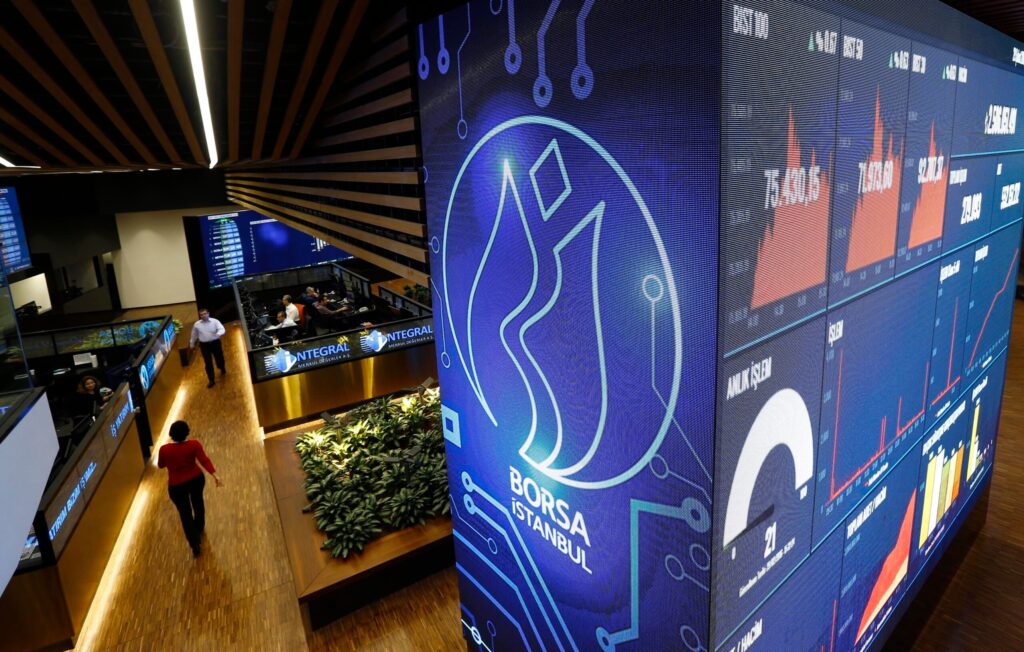Political instability a factor
Foreign investment half 2008 level
Investors are continuing to exit Turkey’s stock exchange, despite Borsa İstanbul’s main index recovering from losses sparked by concerns over political instability.
However, anticipated cuts in interest rates could see a return to the share market as traders seek richer earnings.
More than 1.8 million investors stepped away from the exchange in the year ending June 8, according to a report issued by Turkey’s Central Securities Depository. The share of equity held by foreigners also slipped to an 18-month low.
Foreigners account for 35 percent of equity held on the exchange, half the 71 percent posted in 2008.
Yet the retreat of foreign investor equity only became marked in 2020, having hovered around 65 percent for more than a decade before being eclipsed by domestic equity at the beginning of 2021.
This withdrawal was in part driven by concerns over the Turkish economy during the pandemic and higher returns on offer elsewhere.
Though active, Borsa İstanbul is relatively small when compared to global leaders, with a total capitalisation of around $540 billion. By contrast, the Saudi exchange, the Tadawul, has a capitalisation of $2.6 trillion. Both are dwarfed by the London Stock Exchange with its $6.25 trillion valuation.
Borsa İstanbul’s capitalisation levels took a hit in mid-March after the arrest of a leading rival to President Recep Tayyip Erdoğan. The exchange’s main index dipped 12 percent at one point before a steady recovery saw it claw back most losses.
One cause for the loss of investor appetite is the stronger returns from other fiscal vehicles, in particular bonds, according to Üzeyir Doğan, deputy general manager of Istanbul-based A1 Capital Investment Securities.
“The main reason is high interest rates,” he told AGBI. “We think that investors have parked their assets into bonds.”
While Turkey’s two most recent bond issuances have been heavily oversubscribed, backing Doğan’s belief investors are looking to maximise earnings thanks to the high rates of return on offer, the expected fall in inflation and the central bank’s key lending rate could reverse the flow back toward the market.
Turkey’s consumer price index eased to 35.4 percent in May, fuelling speculation that the central bank could resume its cycle of rate reductions as early as its June 19 monetary policy meeting. The bank’s lending rate at present is 46 percent, down from 50 percent in December.
High rates on deposits offered by commercial banks have also drained off liquidity from the stock market, though this too could change as interest rate returns wane.
“Once cuts in the policy interest rate begin and become permanent, we are likely to see investors, not just foreigners but also domestic, return to the stock exchange,” Doğan said.
“There may be a change in the corridor even if the policy interest rate is kept unchanged in June, with the expectation that the policy interest rate cuts will begin in July.”
“Thus, we would expect that foreign investors may return to stocks by the end of June or in July,” he said.



